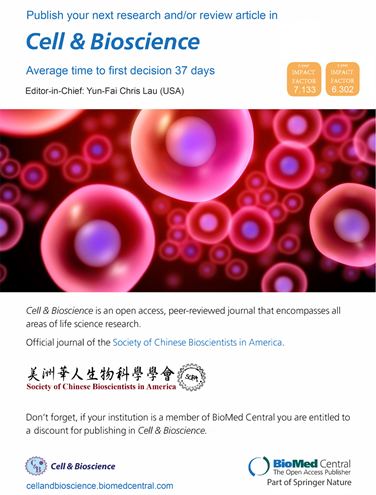基质相互作用分子 2 功能及其对肿瘤微环境免疫调节影响的新见解
IF 6.1
2区 生物学
Q1 BIOCHEMISTRY & MOLECULAR BIOLOGY
引用次数: 0
摘要
免疫细胞增强免疫疗法使一些癌症患者的总生存期得到了前所未有的延长,甚至可以治愈。尽管如此,大多数患者仍无反应。免疫细胞所在的肿瘤微环境(TME)具有多方面的影响,但通常会形成一个免疫抑制龛位,使肿瘤细胞逃脱免疫攻击。TME 中的代谢产物和营养不良会对常驻免疫细胞产生巨大影响,但其深层机制尚不清楚。基质相互作用分子 2(STIM2)是一种内质网(ER)钙(Ca2+)传感器,用于维持 Ca2+ 的平衡。值得注意的是,细胞质 STIM2 的 C 端很长,有各种结构域,可以进行组合或/和分子修饰。这种独特的结构使 STIM2 极易受到众多可渗透的物理化学分子或蛋白质相互作用的影响。STIM2 及其变体在各种免疫细胞中广泛表达,尤其是在 T 免疫细胞中。据报道,STIM2 通过调节 Ca2+ 信号传导、能量代谢和细胞活力,与免疫细胞的功能密切相关。在此,我们总结了有关 STIM2 结构的最新研究成果,重点介绍了其在调控 Ca2+ 平衡和多功能性方面的显著特征和深远影响。我们还概述了 STIM2 异常如何影响免疫细胞功能的内在机制,以及 STIM2 在肿瘤龛内的紊乱表达或/和可修饰性的研究进展。然后,我们讨论了将这些研究转化为抗肿瘤方法的问题,强调了 STIM2 作为治疗靶点的潜力,可直接抑制肿瘤细胞或进一步激活免疫细胞,推动 TME 的发展。本综述是关于 STIM2 的最新进展,旨在合理解释 STIM2 作为免疫调节治疗靶点的潜力,使免疫细胞发挥最大的抗肿瘤作用。本文章由计算机程序翻译,如有差异,请以英文原文为准。
New insights into the stromal interaction molecule 2 function and its impact on the immunomodulation of tumor microenvironment
Immune cells-enhanced immunotherapy exhibits unprecedented overall survival-prolongation even curable in some cancer patients. Although so, most of the patients show no response. Tumor microenvironment (TME) where immune cells settle down has multi-faceted influences, but usually creates an immunosuppressive niche that facilitating tumor cells escape from immune attack. The metabolites and malnutrition of TME exert enormous effects on the resident immune cells, but the underlying mechanism is largely unknown. The stromal interaction molecules 2 (STIM2) is an endoplasmic reticulum (ER) calcium (Ca2+) sensor to maintain Ca2+ homeostasis. Notably, the cytosol STIM2 C-terminus is long with various domains that are available for the combination or/and molecular modification. This distinct structure endows STIM2 with a high susceptibility to numerous permeable physico-chemical molecules or protein interactions. STIM2 and its variants are extensively expressed in various immune cells, especially in T immune cells. STIM2 was reported closely correlated with the function of immune cells via regulating Ca2+ signaling, energy metabolism and cell fitness. Herein, we sum the latest findings on the STIM2 structure, focusing on its distinct characteristics and profound effect on the regulation of Ca2+ homeostasis and multi-talented functionality. We also outline the advancements on the underlying mechanism how STIM2 anomalies influence the function of immune cells and on the turbulent expression or/and amenably modification of STIM2 within the tumor niches. Then we discuss the translation of these researches into antitumor approaches, emphasizing the potential of STIM2 as a therapeutic target for direct inhibition of tumor cells or more activation towards immune cells driving to flare TME. This review is an update on STIM2, aiming to rationalize the potential of STIM2 as a therapeutic target for immunomodulation, engaging immune cells to exert the utmost anti-tumor effect.
求助全文
通过发布文献求助,成功后即可免费获取论文全文。
去求助
来源期刊

Cell and Bioscience
BIOCHEMISTRY & MOLECULAR BIOLOGY-
CiteScore
10.70
自引率
0.00%
发文量
187
审稿时长
>12 weeks
期刊介绍:
Cell and Bioscience, the official journal of the Society of Chinese Bioscientists in America, is an open access, peer-reviewed journal that encompasses all areas of life science research.
 求助内容:
求助内容: 应助结果提醒方式:
应助结果提醒方式:


